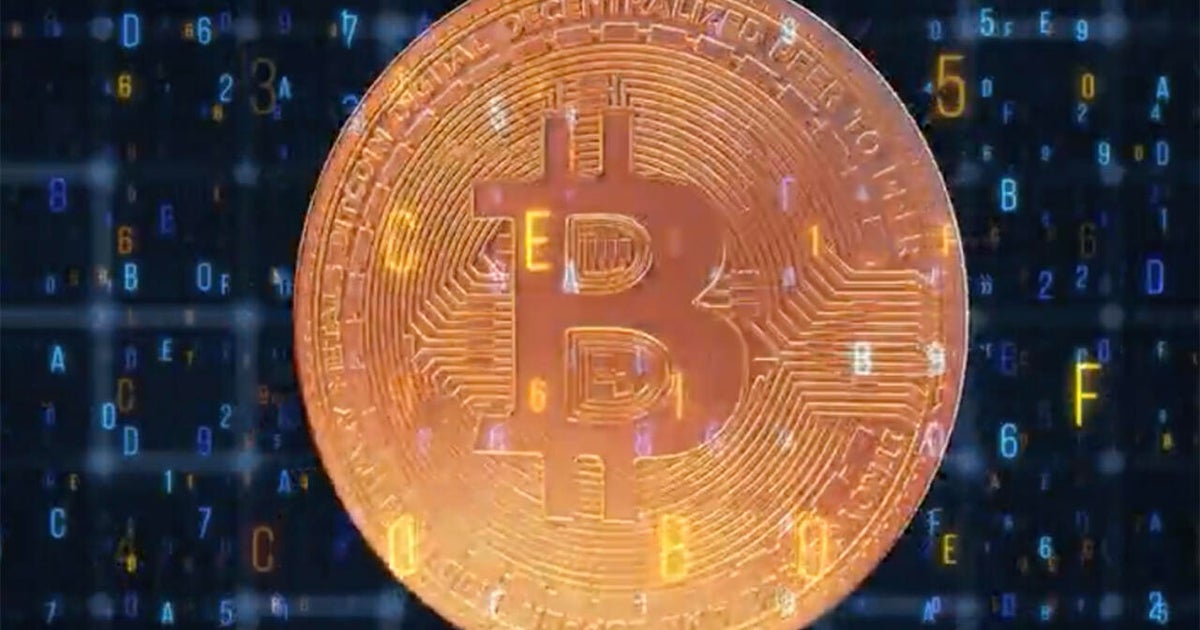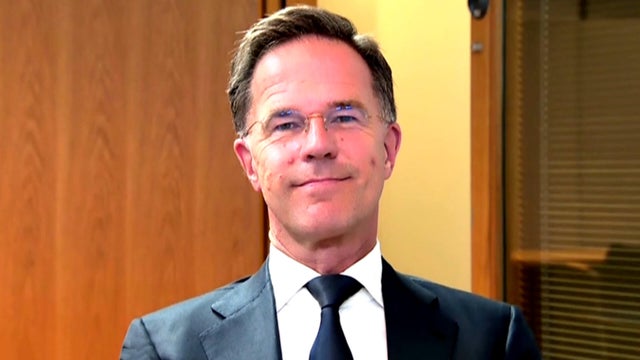

The Crypto Craze Sweeping Washington and Wall Street: A Tumultuous Tide The intersection of cryptocurrency, Washington D.C., and Wall Street is currently a maelstrom of ambition, regulation, and uncertainty. What began as a fringe phenomenon has exploded into a multi-trillion dollar market, forcing both government and finance giants to grapple with its implications. This "crypto craze" is simultaneously generating immense wealth and sparking intense debate, leaving its future trajectory profoundly unclear. On Wall Street, the allure of crypto is undeniable. Major investment banks are increasingly involved, offering trading services, custodial solutions, and even launching their own crypto-related products. Hedge funds are allocating significant portions of their portfolios to digital assets, driven by the potential for high returns, albeit with equally high risk. This integration isn't without friction, however. Concerns about market manipulation, volatility, and the lack of robust regulatory frameworks continue to plague the industry. The collapse of FTX, once a titan in the space, serves as a stark reminder of the inherent fragility of the market and the need for stronger oversight. In Washington, the regulatory landscape is a battlefield. While some lawmakers see crypto as a revolutionary technology with the potential to disrupt traditional finance and enhance financial inclusion, others view it with suspicion, highlighting risks related to money laundering, illicit activities, and consumer protection. The debate centers around how to regulate crypto without stifling innovation. The Securities and Exchange Commission (SEC) has taken a relatively hardline stance, aggressively pursuing enforcement actions against companies deemed to be offering unregistered securities. Meanwhile, other agencies, like the Commodity Futures Trading Commission (CFTC), have adopted a more nuanced approach. This regulatory fragmentation creates uncertainty for businesses operating in the space, hindering growth and investment. The "craze" is further complicated by the ongoing tension between decentralized finance (DeFi) and centralized finance (CeFi). DeFi's promise of a permissionless, transparent financial system appeals to those seeking to break free from traditional intermediaries, while CeFi remains dominant, offering a more regulated and potentially safer, albeit less revolutionary, experience. This dichotomy fuels the debate about the future of finance and the role of government in shaping it. Ultimately, the crypto craze sweeping Washington and Wall Street is far from over. Its impact on the global financial system is still unfolding. Whether it matures into a well-regulated, integral part of the financial ecosystem, or implodes under its own weight, remains to be seen. The coming years will be crucial in determining the fate of this transformative – and undeniably disruptive – technology. The challenge lies in finding a balance between fostering innovation and mitigating the inherent risks, a task that will require deft navigation by regulators, businesses, and investors alike.

Earlier this year, more than 35,000 bitcoin enthusiasts descended on Las Vegas for Bitcoin 2025 – the largest-ever gathering of its kind, attracting an eclectic mix of high rollers ... and true believers.
"Your goal should be to own at least one bitcoin, because by the time you retire, that can be worth 20, 30 million," said Michael Terpin.
Guy Malone said, "You can't change the Bible; it changes you. The same is true of bitcoin."
But everyone here seems to agree on one thing: President Donald Trump's reelection has been like hitting the jackpot. As , "I'm here today to say loud and clear, with President Trump, crypto finally has a champion and an ally in the White House."
Once dismissed by investors, and still baffling to many Americans, cryptocurrencies like bitcoin have won over supporters from Wall Street to Washington. In July, , which opens the door for companies like Wal-Mart and Amazon to issue their own digital currencies.
And Congress is debating another bill that, for the first time, – this after the industry spent more than $167 million on behalf of crypto-friendly candidates ahead of last year's election.
Asked how people should think of cryptocurrencies, Amanda Fischer, who served as a top official in the Securities and Exchange Commission during the Biden administration, replied, "You could think of it as gambling, you could think of it as a collectible, you could think of it as a type of investment. But I think what's important to understand is that crypto is highly volatile. It's highly speculative.
"Crypto is often marketed to individuals as an investment opportunity that will yield them the possibility of great returns," she said. "But unlike, say, a stock, which represents a part-ownership of a company, [crypto] is not backed by any sort of business that is producing goods and services."
Unlike hard currencies like the dollar or the euro, cryptocurrencies only exist online, and are issued by individuals and companies, not central banks. And yet, billions of dollars' worth of crypto are traded every day. "The number of scams, the types of scams, the sophistication of scams are so rife and plentiful that the capacity to lose your money in a crypto investment is substantially higher than if you're just investing in stocks and bonds," Fischer said.
During the Biden administration, the SEC cracked down on the cryptocurrency industry. The Trump administration has changed course, dismissing the largest outstanding cases, which Fischer says leaves consumers more vulnerable.
I asked, "We are seeing leaders in crypto say we want to be regulated. And there is legislation currently here in Washington underway to regulate cryptocurrency. They say they want laws passed."
"They want laws that they write to be passed," said Fischer. "So, the legislation currently being considered in Washington, D.C., is written by and for the crypto industry."
David Bailey, who runs the bitcoin conference and is CEO of a bitcoin holding company called Nakamoto, said, "I wish that was the case, that'd be fantastic. But no, it's not true."
Like many crypto entrepreneurs, Bailey now calls Puerto Rico home. "It started because of the taxes," he said. "Now, it's like the place to do business."
But the 34-year-old's real claim to fame might be his role in convincing a skeptical President Trump (who in June 2021 ) to go all-in on bitcoin during the 2024 campaign. Asked what he told Mr. Trump to convince him to support crypto, Bailey replied, "First off, no one convinces the president of anything. He makes up his own mind about things. A lot of people, especially in Washington, have missed how big this has gotten. And so, we made the case to the president about how many people hold this asset. He saw the opportunity that was here by embracing this industry. And I think we had a big part of swinging the election in his direction."
The Federal Reserve says only eight percent of Americans have bought or held cryptocurrency in the last year, and only two percent have ever used it to buy anything. But digital assets are increasingly part of the economy. You may now be able to use crypto as collateral for a mortgage, and this past week the president signed an executive order to make it easier to .
All the attention has helped drive the price of bitcoin to an all-time high, recently passing $120,000 each.
Bailey says bitcoin was about $10 when he first bought it. Asked how much he bought, he replied, "Well, you know, that's something I'm not going to talk about on camera. Not enough, let's just go like that. Not enough."
And as crypto's fortunes have improved, ; TheNews estimates that crypto ventures controlled by the Trump family have made up to $765 million in revenue from token sales since the fall of 2024.
The White House did not respond to questions about the token sales, but in a statement told TheNews, "Neither the President nor his family have ever engaged, or will ever engage, in conflicts of interest."
Most experts in government ethics believe the situation is unprecedented.
I asked Bailey, "Has it ever occurred to you that maybe the president has changed his position on bitcoin and crypto because he can personally benefit from it, or his family can?"
"No, absolutely not," said Bailey. "I don't think he embraced this industry to enrich himself; I think that he just sees the same potential that I see. When you get excited about an idea, you feel compelled to do something about it."
And that potential is why investors are betting that crypto will soon become part of everyday life. Vice President Vance told the audience at Bitcoin 2025, "We want our fellow Americans to know that crypto and digital assets, and particularly Bitcoin, are part of the mainstream economy and are here to stay."
But for Amanda Fischer, that's a gamble not worth taking.
"We heard the same thing about subprime mortgages going into 2008," said Fischer. "We heard the same thing about complex financial derivatives going into the last crisis, too. These products are wonderful and there are ways to extract so much value in wealth, until they're not. And I fear that crypto is going to follow down the same path. Things are going great many times, until they're not."
For more info:
Story produced by Mark Hudspeth, Madeleine May and Dan Ruetenik. Editor: Jason Schmidt.
See also:





